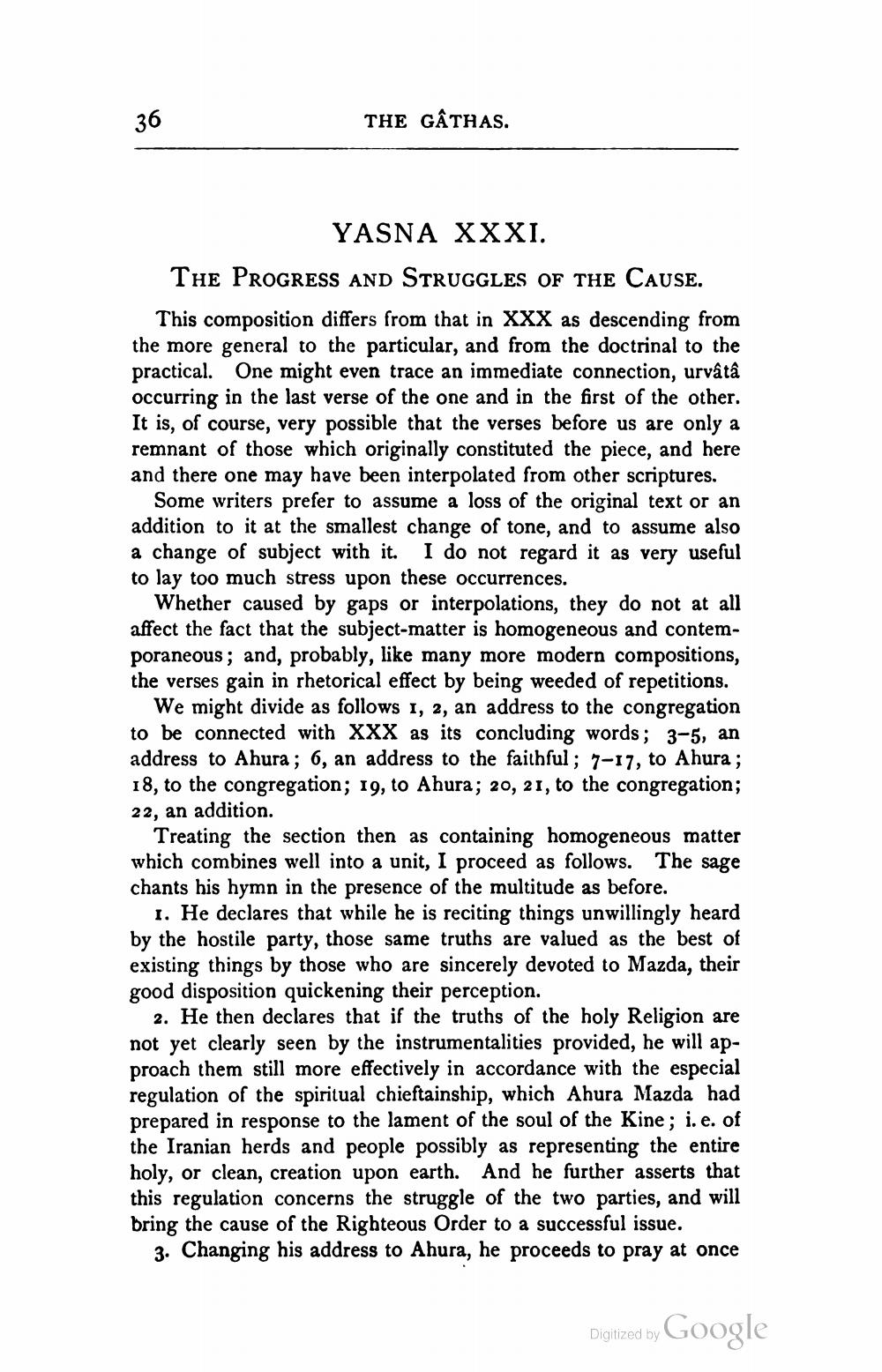________________
36
THE GÂTHAS.
YASNA XXXI. THE PROGRESS AND STRUGGLES OF THE CAUSE. This composition differs from that in XXX as descending from the more general to the particular, and from the doctrinal to the practical. One might even trace an immediate connection, urvata occurring in the last verse of the one and in the first of the other, It is, of course, very possible that the verses before us are only a remnant of those which originally constituted the piece, and here and there one may have been interpolated from other scriptures.
Some writers prefer to assume a loss of the original text or an addition to it at the smallest change of tone, and to assume also a change of subject with it. I do not regard it as very useful to lay too much stress upon these occurrences.
Whether caused by gaps or interpolations, they do not at all affect the fact that the subject-matter is homogeneous and contemporaneous; and, probably, like many more modern compositions, the verses gain in rhetorical effect by being weeded of repetitions.
We might divide as follows 1, 2, an address to the congregation to be connected with XXX as its concluding words; 3-5, an address to Ahura; 6, an address to the faithful ; 7-17, to Ahura ; 18, to the congregation; 19, to Ahura; 20, 21, to the congregation; 22, an addition.
Treating the section then as containing homogeneous matter which combines well into a unit, I proceed as follows. The sage chants his hymn in the presence of the multitude as before.
1. He declares that while he is reciting things unwillingly heard by the hostile party, those same truths are valued as the best of existing things by those who are sincerely devoted to Mazda, their good disposition quickening their perception.
2. He then declares that if the truths of the holy Religion are not yet clearly seen by the instrumentalities provided, he will approach them still more effectively in accordance with the especial regulation of the spiritual chieftainship, which Ahura Mazda had prepared in response to the lament of the soul of the Kine ; i.e. of the Iranian herds and people possibly as representing the entire holy, or clean, creation upon earth. And he further asserts that this regulation concerns the struggle of the two parties, and will bring the cause of the Righteous Order to a successful issue.
3. Changing his address to Ahura, he proceeds to pray at once
Digitized by
Digitized by Google




